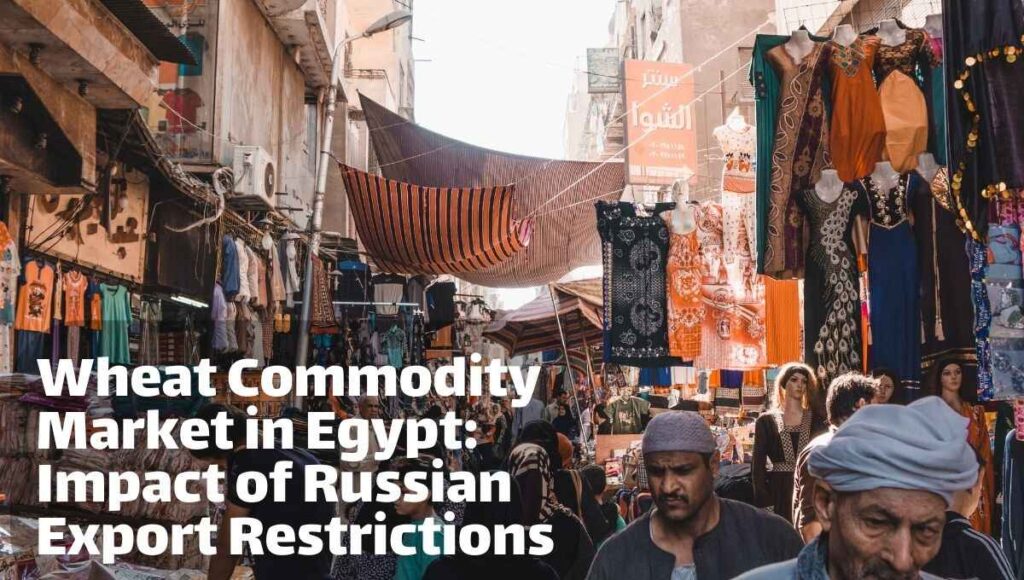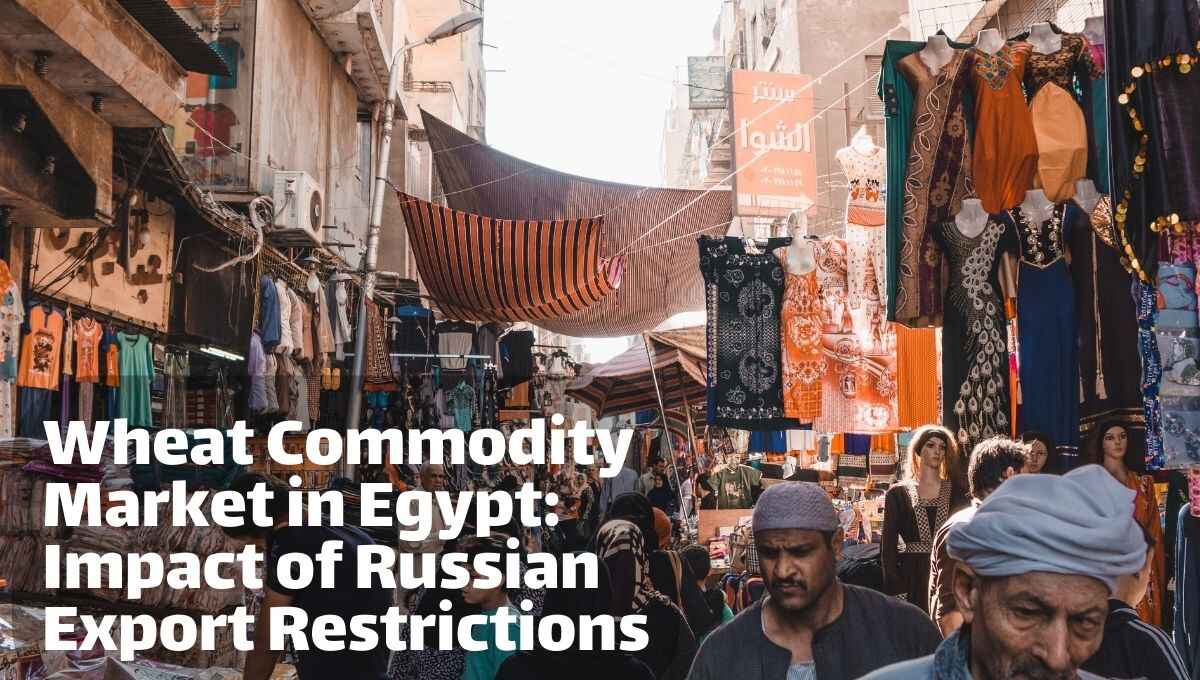
Discover the latest updates on Egypt’s wheat commodity market and the implications of Russia’s export restrictions. Stay informed with Reuters’ comprehensive analysis.
Wheat Commodity Market in Egypt: Impact of Russian Export Restrictions
Let’s get started with the details so, continue reading the article…
Why is Wheat a Crucial Commodity for Egypt’s Economy?
Page Contents
Egypt, a significant importer of wheat, is mostly dependent on this crop to provide its local demand for bread and other items made from wheat.
The Egypt wheat market is essential to preserving both food security and economic stability due to the country’s fast-expanding population and its limited agricultural resources.
The recent export restrictions imposed by Russia have significantly affected global wheat prices, making it essential to understand the implications for Egypt’s wheat market.
Due to domestic worries and efforts to fix prices, the Russian Federation, one of the biggest wheat producers in the world, has put limits on wheat exports in place.
This has caused a surge in wheat prices globally, impacting Egypt’s import costs and potentially leading to higher bread prices for consumers.
The Egyptian government and relevant stakeholders are closely monitoring the situation and taking measures to mitigate the potential consequences.
Egypt’s strategic location and its robust infrastructure for wheat imports have allowed the country to establish strong trade relationships with various wheat-producing nations.
However, the recent export restrictions by Russia have disrupted this balance, creating challenges for Egypt’s wheat import market. Efforts are underway to diversify import sources and explore alternative strategies to ensure a stable supply of wheat at affordable prices.
Analyzing the Impact of Russian Export Restrictions on Egypt’s Wheat Market
The implementation of export restrictions by Russia has triggered a series of consequences in Egypt’s wheat market.
The limited availability of Russian wheat has resulted in increased competition among importing nations, leading to higher prices and potential supply shortages.
Egypt’s state grain buyer, the General Authority for Supply Commodities (GASC), has been actively seeking alternative sources and negotiating contracts with other major wheat exporters.
Moreover, the uncertainty surrounding future wheat supplies has prompted Egyptian farmers to increase wheat cultivation domestically.
The government has provided incentives and support to boost local production and reduce reliance on imports. In the short term, Egypt will continue to depend heavily on imported wheat, thus their efforts won’t be felt for some time.
The global wheat market is complex and interconnected, with various factors influencing prices and availability. Weather conditions, geopolitical developments, and export policies of major wheat-producing countries all contribute to market volatility.
As Egypt navigates the challenges posed by Russian export restrictions, close monitoring, and proactive measures will be essential to ensure the stability and affordability of wheat for the country’s population.
Future Prospects: Addressing Challenges and Building Resilience
To mitigate the impact of Russian export restrictions and enhance resilience in the wheat market, Egypt is exploring several strategies. These include diversifying import sources by strengthening relationships with other wheat-exporting countries, such as the United States, Canada, and Australia.
Negotiations are going to secure long-term contracts and ensure a safe supply of wheat at low prices.
Additionally, Egypt is investing in technological advancements and agricultural research to increase domestic wheat production.
Innovations in farming techniques, water management, and seed development are being implemented to enhance yields and improve the quality of locally cultivated wheat.
These efforts aim to reduce reliance on imports and enhance self-sufficiency in wheat production.
Despite the challenges posed by the Russian export restrictions, Egypt remains committed to ensuring food security and stability in its wheat market.
Close collaboration between the government, industry stakeholders, and international partners is crucial to address the current situation effectively. By diversifying import sources, boosting domestic production, and implementing proactive policies, Egypt aims to build a resilient and sustainable wheat market.
Interesting Part:
Wheat has been a major crop in Egypt’s long history of agriculture, which spans thousands of years. Egypt’s rich land along the banks of the Nile River has sustained the growing of wheat for generations, helping to give the nation historical prominence as the “breadbasket of the world.”
R Amin founded Try Latest Info, a website that provides readers with the latest information on business news, trends, and developments. He shares his insights and expertise through his social media handles and website. To learn more about R Amin or to connect with him on social media, please visit his website at https://trylatestinfo.com/.
